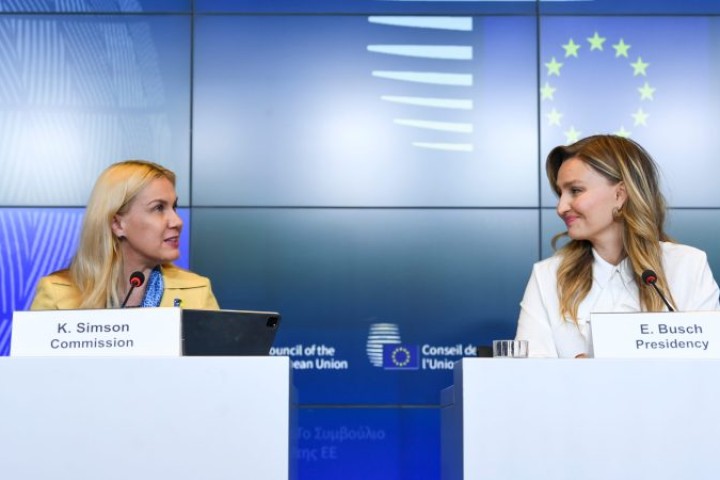EU countries fail to agree position on electricity market reform

The reform, tabled by the European Commission in March, aims to lower electricity bills by relying less on short-term markets and promoting instead long-term contracts with renewable energy producers.
“Long and difficult negotiations on electricity market design today,” Swedish Deputy Prime Minister and Energy Minister Ebba Busch, who chaired the meeting, told journalists afterwards.
“We have successfully agreed on two out of three parts of the electricity market design package,” she added.
Ministers met in Luxembourg with the aim of greenlighting their stance ahead of negotiations with the European Parliament to finalise the law before the winter season.
But while they agreed on a law to prevent market manipulation and tentatively agreed on some elements of market reform, they left with major outstanding issues.
The rest of the reform is being sent back to EU ambassadors for further talks on elements such as contracts for difference, which regulate state aid for power generation projects, and capacity mechanisms, which remunerate backup suppliers to the grid.
Derogation for coal subsidies
One of the reasons why finding agreement was so difficult is that, unlike some debates, there is no clear split between countries. Instead, there are different blocking minorities that want other things, according to two EU diplomats.
Blame has also been laid at the feet of the Swedish EU Presidency, with a third diplomat telling EURACTIV that there had been a waste of three hours while another criticised the Swede’s “mismanagement” in attempts to broker a deal.
The diplomat pointed to the disruption caused on Friday (16 June) when the Swedish Presidency produced a new text including a derogation for coal subsidies via capacity mechanisms.
The move, aimed at winning support from Poland, needlessly opened a Pandora’s Box and pushed back progress on reaching the required majority, the diplomat told EURACTIV.
Throughout the day, several countries voiced concerns about including a on derogation for coal, including Luxembourg’s energy minister Claude Turmes, who said it was “really astonishing” and weakened Europe’s climate policies. He added that there was a big enough group of countries to block a text with this in.
In the room document circulated by the Swedish Presidency on Monday and seen by EURACTIV, the explicit derogation for coal has been removed. However, this is not the final text and may still be revised.
According to one diplomat, the proposal will likely return to talks between ambassadors on Friday (23 June) but could require a couple more sessions to approve, making it unlikely to be agreed on until the Spanish presidency, which takes over in July for the next six months.
Contracts for difference
According to the Swedes, the primary issue is contracts for difference, with France and Germany butting heads on this point, one EU diplomat told EURACTIV.
While France is looking at contracts for difference to support the lifetime extension of its existing fleet of nuclear power plants, Germany is adamantly against this.
“We are fine with contracts for difference, in general, of course, but for existing generation, we feel that this could lead to market distortions as large parts of the markets could become inflexible and also to a distortion of the level playing field concerning the prices in Europe,” said Robert Habeck, Germany’s vice chancellor and minister for economy and climate.
According to Simson, more work needs to be done on the wording regarding existing assets. “This is an important point because it has implications for investment promotion and for the single market and the level playing field among member states. So we decided that we need some more time to achieve a viable solution,” she explained.
The reform will now return to the ambassador level, where further negotiations regarding the text will occur. Once this is complete, it can be approved by any meeting of EU ministers.
These agreements are important, but they must also be practical.

